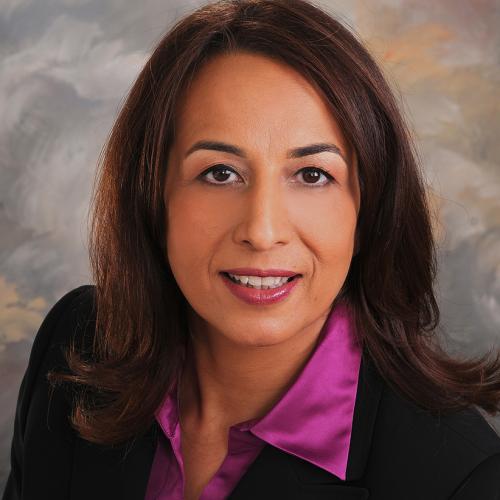Privacy, security, and trust have long been watchwords in the computer science and computer engineering fields. Generally, however, these groups don’t prioritize how those issues impact users of the technology they create. GSLIS Assistant Professor Masooda Bashir wants to change that. With a background in math, computer science, and psychology, she has long been interested in the human aspects of digital technology.
“Once information is digitized, the security of that information, not to mention its privacy and the trust in that information, becomes very important,” she said. “How do users think and feel about these issues? These are timely topics for an information school.”
Bashir is especially pleased to be affiliated with GSLIS. “Librarians have historically been at the forefront of protecting patron privacy, and guarding intellectual freedom,” she said. “That philosophy is very big in my outlook and my research, and I’m very pleased to be part of that great tradition.”
GSLIS Dean Allen Renear agrees. “The opportunity to hire Masooda was terrific for us,” he said. “We knew right away she was a great fit.”
Renear was equally excited about Bashir’s decade of work experience in Silicon Valley and elsewhere. “We value workplace experience, and Masooda’s background is enormously valuable,” said Renear, noting that she worked in precisely the kinds of companies many GSLIS graduates are likely to work in.
Among her projects, Bashir’s research explores some concepts that appear simple, but are not. Take information privacy, for example. Many technology developers have long recognized the “privacy paradox”: in research studies, users say information privacy is very important to them, but researchers then observe that those same users reveal a lot of personal information online through social media platforms including Facebook and Instagram. As a result, research has often concluded that users don’t care about privacy, even when they say they do.
Bashir disagrees with this commonly held view. She believes we must gain a more nuanced understanding of what privacy means to people in an online world. Much of her recent work involves understanding, “What does privacy mean to people? How do you define or conceptualize privacy in this digital era?”
It turns out there is no one easy definition of privacy; when she teaches her GSLIS course, Privacy in the Internet Age, every student has a different definition. Even within the scholarly community there is no one consistent definition, says Bashir.
Bashir has observed increased interest in privacy issues in the last few years. “There have been social changes and technological enhancements that make digital information privacy even more challenging for us,” said Bashir. ”Technology has become very sophisticated, so that inferences about users’ behaviors, personality, and political views can now be made based on other things they are doing online.”
People have come to appreciate that privacy is important, and not just a concern of those who have something to hide, she says. In part, that is because corporations and governments have collected enormous amounts of user information that has not always been completely secure. When this information is hacked, this is a concern for everyone. By doing research in this area and elucidating users’ feelings about privacy, Bashir hopes to help industry develop alternatives for people who are concerned about privacy.
“One thing I have learned from my research is that there is no one answer or design solution,” she said. “People are different, whether in their culture, age, gender, or race.”
It also depends on the context, Bashir notes. Users may feel comfortable, for example, sharing medical information with their doctor but not with their employer. “I’m not saying don’t collect information,” she said. “You do need information to function as a society, but it’s the context in which it belongs. The lack of guidelines, principles, or ethics of sharing information is problematic.”
Bashir hopes that her research will help more precisely design systems for specific audiences. “I’m very interested in keeping the human user in the loop,” she said.
Although privacy has taken a central role in Bashir’s research, she also investigates the issue of trust and how it relates to automated systems. How do we develop trust in those devices that purport to guide us in a strange environment, for example? Do you believe your GPS will take you the best route, or do you think you know a better one?
“It can be very simple or complex,” said Bashir, “but understanding how humans build trust, maintain it, and what factors influence that trust are going to be really important.”
